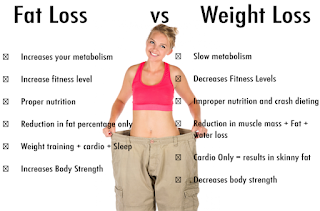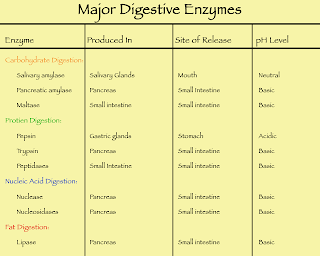Multivitamins: Are They Really a Waste of Money?
Multivitamins are exactly what they sound like: multiple vitamins. They're supplements that contain several different vitamins in each one. They can also contain several minerals and other ingredients like amino acids or fatty acids. And because there are multiple ingredients, there are low doses of each ingredient.
In fact, they are the most commonly used supplements in the world!
There are 13 vitamins and at least 16 minerals that are essential to health. You need certain amounts of all of these nutrients for optimal health. In fact, nutrient deficiencies can impact reproduction, growth, and regulation of bodily processes.
Lots of people say that if you follow a "balanced diet," you'll get enough vitamins and minerals. I personally would love to believe it … but it's just not true. Many people are eating way too much-processed food that is devoid of nutrition. There's a lot of research that shows many people don't get enough vitamins and minerals. Period.
How do you know which vitamins and minerals are in your multivitamin? Read the label, and don’t be afraid to ask questions! If there are at least three different vitamins and minerals listed, it’s a multivitamin.
Do multivitamins work?
Multivitamins have been studied a lot.
The quality of the multivitamins studied has not been consistent. Some studies consider any supplements with at least three vitamins to be a "multivitamin." Most of the time, the multivitamins studied are ones that are very popular and are available everywhere.
So, what exactly do we know about the health benefits of multivitamins?
Here’s a quick summary of the science:
● Multivitamin use is linked with improved moods. Interestingly, if someone has nutrient deficiencies, they may have mood imbalances. So, if the multivitamin addresses an underlying deficiency, this makes sense.
● In terms of memory and cognitive performance (ability to think), there seems to be an improvement in people who regularly take multivitamins.
● In terms of cataracts and age-related macular degeneration, there seems to be a slight improvement.
● In terms of heart disease, the results are mixed. There may be an increase, or a decrease, or no effect on risk of heart attacks.
● In terms of cancer, there is a slightly reduced risk of certain cancers in men.
● In terms of mortality (death), there doesn't seem to be a clear increase or decrease in mortality rates for people who take multivitamins.
All in all, multivitamins aren’t magical “health pills.” They’re not guaranteed to improve your mental or physical health, or help you live longer; but, they do have some health benefits.
Are multivitamins safe?
Just about every study that looked to see if multivitamins were health-promoting, also looked at side effects. They have consistently shown that multivitamins are very safe.
Now, I’m not talking about high-dose supplements. High doses of many nutrients can be harmful. But specifically for multivitamins where there are several nutrients included, all of which are in low doses. Those are safe.
Unless you have a knowledgeable practitioner advise otherwise, you want to stick to the dose on the label. That dose should be safe for most people.
However, there are many times when supplements (not just multivitamins) have been tested and found to contain different ingredients than what's on the label; this may be different quantities of vitamins or minerals. Sometimes they contain ingredients that are not supposed to be in them at all (like toxins or prescription medicines).
This is why choosing supplements that are licensed, if applicable (like in Canada), and from reputable companies is so important.
Conclusion
Multivitamins are not a way to optimal health. There is limited evidence that they improve health for most people. But there are some benefits.
Since they contain low doses of many different nutrients, they're also safe (as long as you have a quality product).Of course, taking a multivitamin is not a way to improve a poor diet. I always recommend eating a balanced diet of whole foods. There is plenty of evidence that eating a diet of whole, unprocessed food prevents many diseases.
So try out my superfood salad - It’s like a multivitamin with benefits.
Recipe (Nutrient Dense): Superfood Salad
Serves 2
2 handfuls of greens (e.g. kale, spinach, arugula, etc.)½ cucumber, chopped1 avocado, chopped1 bell pepper, chopped
1 carrot, grated
2 handfuls grape tomatoes
2 handfuls of fresh berries
2 broiled salmon fillets (optional)
2 handfuls grape tomatoes
2 handfuls of fresh berries
2 broiled salmon fillets (optional)
¼ cup hemp seeds
Salad Dressing:3 tbsp cider vinegar2 tsp Dijon mustard2 tsp honey or maple syrup
1 dash salt
2 dashes black pepper
1/3 cup extra virgin olive oil
2 dashes black pepper
1/3 cup extra virgin olive oil
Instructions
Grab two large bowls and put one handful of greens each.
Split all the rest of the fruits and vegetables, placing half in each bowl.
Make the dressing by whisking together the vinegar, mustard, honey/maple syrup, salt, and pepper. Slowly drizzle in olive oil while whisking to emulsify. Pour over salad before serving.
Top with salmon and hemp seeds.
Serve & enjoy!
Tip: You can use grilled shrimp instead of the salmon.
References:




great article about multivitamins..and also a great SALAD recipe! thanks for sharing brother!
ReplyDelete